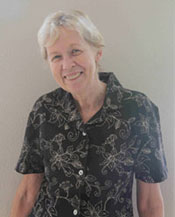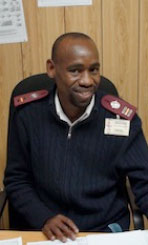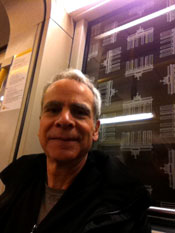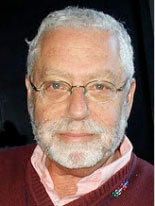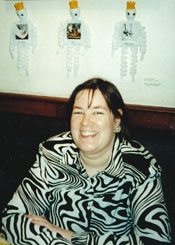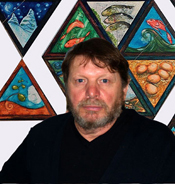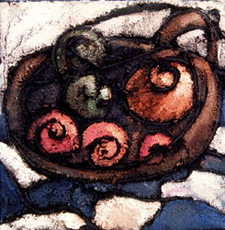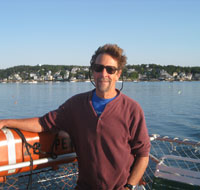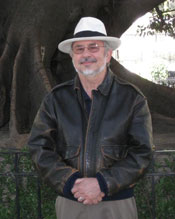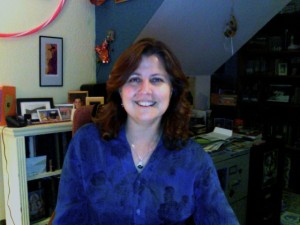An American Awakening
December, 2011
This essay was written for CNN.com and Sisyphus

This past December I received an invitation to speak at a conference on Occupy Wall Street at the University of Tehran. Given the grim state of U.S-Iran affairs, I was naturally filled with suspicion. Perhaps the Iranian state was trying to use the Occupy movement to foster anti-American sentiment? Or maybe the conference organizers were just naïve dissidents, and we would be viewed as foreign instigators, attempting to foment internal strife. Both, we reasoned, were not likely. Occupy may be anti-corporate,but it is unambiguously pro-American. And there was never any talk of Occupy Iran.
The night I accepted the invitation, my husband Glenn and I watched news reports of Ahmadinejad on camera displaying a recently captured U.S. spy drone. We joked about buying drone paperweights and key chains as souvenirs for our friends. But it was a nervous laughter. Days later, Iran deployed naval ships in the Strait of Hormuz, through which about a fifth of the world’s oil trade passes, and Israeli leadership gloated at the murder of an Iranian nuclear scientist. Obama retaliated with the severest round of sanctions to date, backed by the European Union, but more controversial in the East. The embargo was being justified as the “humanitarian alternative” to war, but we knew from Iraq what that meant. A line had been drawn in the sand, and everyday people were going to suffer. People that we Americans were about to meet face to face.
Continued conversations with conference organizers helped ease our paranoia. North American Studies students and faculty members genuinely wanted to understand this historic movement. Occupy Wall Street has inspired fundamental changes in the American political and cultural landscape, with much of the world’s support and respect. Why would Iran be any different?
As the spectre of world conflict loomed, I prepared my talk carefully, haunted by news reports of detained journalists and alleged U.S. spies. What should I not say? Will we be watched, controlled? Will I, as a woman, be treated as a second-class citizen, captured by the fashion police? Or will my husband bear a deeper brunt, as a Jew? We felt like we were jumping off a cliff. Yet my Iranian friends and academic colleagues strongly encouraged me. This was an opportunity of a lifetime. The media, they said, overblows Iran. Much of the mythology is based on lies. You will absolutely lovethe people.
It took much less than the measly 100 hours we spent in the country to discover that truth. Indeed, we soon fell in love with our gracious hosts, especially the graduate students that accompanied us everywhere, engaged us personally, intellectually and culturally, and sacrificed their time and energy to make sure we were cared for.
Against the common misconception of anti-Americanism in Iran, faculty members repeatedly talked about Iranian students’ desires to know America, study in its universities, and experience its unique culture. And despite its reputation for anti-Semitism, some expressed concern that an attack from Israel would endanger their friends in the Jewish minority. Large numbers of faculty attended the conference, as well as the in-between lunches, dinners, and tea times, offering lively and rich conversation. We found common ground in heavy teaching loads and underfunded research. Not once did any of them speak to each other in Farsi while in our company.
I do not want to overstate or over-generalize my experience. There was quite a bit we did not discuss, and there remain many unknowns. We were visitors, and we were treated with white gloves. I know that. I did not learn enough to assess the elections or the magnitude of desires for reform. I did not visit the terrible prisons or get to talk to any Green Revolutionaries or potential Occupiers. And of course, I did not gain insight into whether Iran is developing WMDs. One hundred hours is not enough time to unravel the complexities of any country’s social and political life. And any decent ethnographer knows that you cannot force “truths,” especially those that may be informed by decades of misunderstanding and conflict. It was more important for me to share human moments. And we did share many of those.
One such moment occurred my very first day in Tehran. After touring a colorful and energetic bazaar, we decided to step into a majestic shrine (mosque) made of ornate blue tile with a brilliant silver sheen. I was exhausted from travel and enjoying an immediate camaraderie with the female graduate student accompanying us, named Zahra. Just as we approached the entrance to the mosque, a man ran out from a booth and placed a chador on my shoulders. Zahra smiled sweetly, “You look beautiful!”
The men entered with the men, and Zahra and I, with the women. The walls of the interior glistened like diamonds, and I felt my ignorant, egotistical self shrink before the enormity of the place, the enormity of what we don’t know about Iran, and the enormity—and sheer beauty—of Islam.
Such Awakening remained a common theme, both in and outside the conference. Presenters located continuity between Occupy and the Arab Awakening, and the crucial struggle against inequality, imperialism, and the 1 Percent. I spoke about the socio-economic woes that precipitated OWS. Though I did not use the language of Awakening, I did speak about dispossession, and the grassroots nature of the movement, aimed at taking back what had been lost to corporate greed and irresponsibility.
Another American participant, Dr. Idris Hamid, translated this message of loss and Awakening in moral and spiritual terms, illuminating the Islamic concept, wallayah, a dynamic and communal love that interconnects people and binds them to God and each other. Occupy signifies the breakdown of such bonds in American society, but also the deep desire to re-find them. I thought of the Occupy camps. With all their warts, they represented the found community that so many people in this country desperately need.
The metaphor of Awakening struck an even deeper chord during a special meeting the faculty had arranged with the Ayatollah Khomeini’s daughter, Zahra Mostafavi. We toured Khomeini’s home, beginning with an incredible room of photographs documenting the Islamic Revolution. The Revolution involved some of the largest street protests in modern history. Interesting by any standard, but for a social movement scholar like myself, a true wonder.
As I viewed the dramatic scenes of Khomeini’s life, I flashed back to my own childhood, to propagandistic images of Khomeini as an evil dictator, the terrible jokes about Muslims that circulated through my Catholic grade school. I remembered support of the tyrannical Shah, who privatized much of Iran’s resources, turned it into a comprador regime, and committed unspeakable acts against his own people. During the hostage crisis, Iranians were cast as fundamentalist monsters in American bedtime stories, and it’s the generation of children who heard those stories, my generation, who are now setting the terms of our political relationship today.
During our meeting, Dr. Mostafavi told us the story of Khomeini’s intellectual and spiritual development, his stalwart activism, and difficult exile. He did not force the Revolution, she said, but rather waited for a true and popular Awakening. People had to see the world differently for themselves, they had to believe in the possibility of change. In his writings, Khomeini eschewed simplistic East versus West narratives of inequality. His was a framework of Arrogance versus The Oppressed.
Decades of betrayal of the Revolution’s promise by Iran’s 1 Percent has darkened Khomeini’s legacy. But the importance of this framework persists. The 1 Percent is not just a statistic. It is a concept that speaks to the arrogance of power.
***
After we said goodbye to our new friends in Iran, Glenn began to weep in the elevator. “I looked into the eyes of those children in the playground. I made sure to look at each one of their faces.” I had only ever seen him cry once before.
“We can’t go to war with this country,” he said. “We just can’t.”
That evening, news footage of the burning of the Qu’ran by U.S. soldiers was reported on all channels, alongside images of them urinating on the dead bodies of Afghani people.
I was filled with Terror.
All photos accompanying this essay are courtesy of Glenn Kaplan.


















